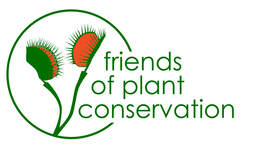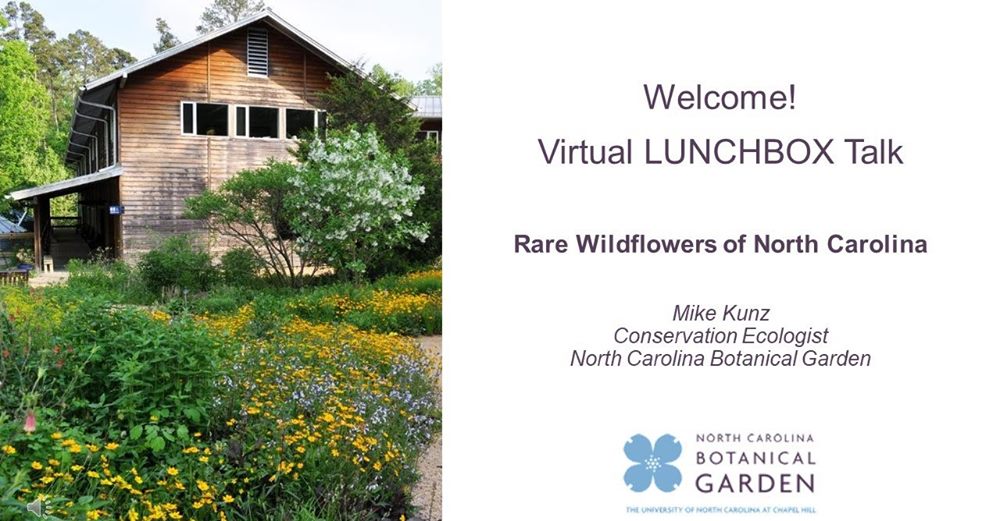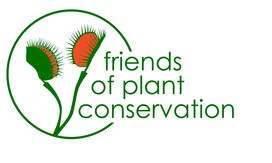Proposed trail may threaten biodiversity in western North Carolina
CHAPEL HILL, N.C. — Western North Carolina is famous for its mountains and its biodiversity. Its beautiful views and rare plants draw tourists.
Now, a proposed state trail designed to draw more tourists could endanger plants that are an important part of the ecosystem.
The Northern Peaks Trail would be a 40-mile-long corridor that connects Boone and two state parks — Elk Knob and Mount Jefferson. The trail’s master plan estimates that the trail could generate $2.5 million in annual economic impact from visitors, said Wright Tilley, executive director of the Watauga County Tourism Development Authority.
“Leaders in both Watauga and Ashe continue to hear from residents and visitors that they want public access to outdoor recreation areas, specifically hiking trails and river access,” Tilley wrote in an email.
See full article: http://mediahub.unc.edu/proposed-trail-may-threaten-biodiversity-in-western-north-carolina/
CHAPEL HILL, N.C. — Western North Carolina is famous for its mountains and its biodiversity. Its beautiful views and rare plants draw tourists.
Now, a proposed state trail designed to draw more tourists could endanger plants that are an important part of the ecosystem.
The Northern Peaks Trail would be a 40-mile-long corridor that connects Boone and two state parks — Elk Knob and Mount Jefferson. The trail’s master plan estimates that the trail could generate $2.5 million in annual economic impact from visitors, said Wright Tilley, executive director of the Watauga County Tourism Development Authority.
“Leaders in both Watauga and Ashe continue to hear from residents and visitors that they want public access to outdoor recreation areas, specifically hiking trails and river access,” Tilley wrote in an email.
See full article: http://mediahub.unc.edu/proposed-trail-may-threaten-biodiversity-in-western-north-carolina/
Southeastern Plant Conservation Alliance
The Southeastern Plant Conservation Alliance is a regional partnership collaborating to prevent and restore the loss of plant diversity in our region. Specific goals are to:
http://www.se-pca.org/
- Develop a List of Species of Greatest Conservation Need for Southeastern plants.
- Use the List to identify and conduct conservation status assessments for priority species.
- Secure 60–75% of Southeastern rare plants in seed banks and cultivated (ex situ) living collections.1
- Implement recovery and restoration projects that return 10–15% of ex situ collections into the wild (in situ) within 4 – 6 years.
- Promote the utilization of the Center for Plant Conservation’s Best Practices.
- Support the National Seed Strategy for Rehabilitation and Restoration.
- Increase public awareness of the critical and essential roles of plants in recovering biodiversity.
- Focus conservation funding on efficient and cost-effective recovery efforts.
http://www.se-pca.org/
Learn about rare North Carolina wildflowers
Mike Kunz provides a virtual tour across North Carolina to see some of our most rare, beautiful and sometimes overlooked wildflowers. He explores from the mountains to the coast and shares what makes a plant rare and what is being done to protect them through stories of both woe and conservation success.
https://www.youtube.com/watch?v=Czew3DUkKww&feature=youtu.be
https://www.youtube.com/watch?v=Czew3DUkKww&feature=youtu.be
Sustainable Recreation and Plant Conservation:
Matt Estep, PhD, FOPC Board member, Appalachian State University assistant professor of Evolutionary Genetics and Genomics, and Preserve Steward at Tater Hill Plant Conservation Preserve, discusses trails and imperiled species:
...There are many ways to make hiking one of the most sustainable and environmentally friendly activities on Earth, but building trails on rare and unique plant communities is not one of them. Sensitive plants and habitats can be destroyed in the blink of an eye by trampling, which is why any good trail system needs to put plant conservation at the forefront. This is exactly what we are talking about in this episode....
Listen to the full story (click on link):
https://www.indefenseofplants.com/podcast/2020/9/6/amphibolitemountains
...There are many ways to make hiking one of the most sustainable and environmentally friendly activities on Earth, but building trails on rare and unique plant communities is not one of them. Sensitive plants and habitats can be destroyed in the blink of an eye by trampling, which is why any good trail system needs to put plant conservation at the forefront. This is exactly what we are talking about in this episode....
Listen to the full story (click on link):
https://www.indefenseofplants.com/podcast/2020/9/6/amphibolitemountains


